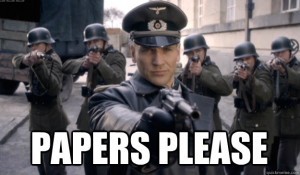
FOR IMMEDIATE RELEASE:
CONTACT: Jed Silverman, HCCLA President
(713) 226-8800 / email
State Bar of Texas Proposed Disciplinary Rule Change:
Rule 3.09 Special Responsibilities of Prosecutors
Houston, Texas – April 11, 2023 – The State Bar of Texas Committee on Disciplinary Rules and Referenda will hold a public hearing on Proposed Rules 1.08, 3.09, 5.01, 5.05, and 8.05 by teleconference at 10 a.m. CDT on April 12, 2023.
Jed Silverman, President of the Harris County Criminal Lawyers Association (HCCLA), submitted the following comments regarding the responsibilities of prosecutors in the proposed change to Rule 3.09 of the State Bar of Texas Disciplinary Rules of Professional Conduct.
For teleconference participation information: texasbar.com/cdrr/participate, where an agenda with a Zoom link will be posted before the meeting. If you plan to address the Committee at the public hearing, it is requested that you email cdrr@texasbar.com in advance of the hearing stating on which rule(s) you will comment.
Dear Committee:
I am writing to you on behalf of the Harris County Criminal Lawyers Association, the largest local criminal defense bar in the United States with more than 500 active members engaged in the defense of citizens accused of criminal acts. The proposed change to Rule 3.09 of the Texas Disciplinary Rules of Professional Conduct has received a great amount of attention from our Board of Directors and members and I can confidentially say that our entire organization stands behind this proposed Rule. We urge this Committee to recommend the proposed rule to the Board of Directors for the State Bar be submitted for a vote before the entire Bar.
For years, Texas has struggled with the concept that prosecutors are to seek justice, not just convictions, and, in seeking to adhere to that duty, they are to disclose exculpatory evidence. It should be noted that the current version of Article 39.14 of the Texas Code of Criminal Procedure was enacted a decade ago and named for Michael Morton, a man wrongfully convicted of murder who spent 25 years in prison for a crime he did not commit. As was well-documented and confirmed in court, prosecutors withheld evidence in his trial and subsequently continued to fight against producing DNA evidence during the post-conviction writ process that eventually proved his innocence.
Harris County too has seen its share of convictions overturned due to prosecutorial misconduct where prosecutors withheld exculpatory evidence. See Ex parte Temple, No. WR-78,545-02, 2016 WL 6903758 (Tex. Crim. App. 2016); Ex parte Brown, No. WR-68,876-01, 2014 WL 5745499 (Tex. Crim. App. 2014); Prible v. Davis, No. 09-CV-1896, 2020 WL 2563544 (S.D. Tex. May 20, 2020), vacated sub nom. Prible v. Lumpkin, 43 F.4th 501 (5th Cir. 2022).
Although it is not a perfect solution to curbing this untenable problem, our organization believes the presently proposed change to Rule 3.09 is a necessary step for what we see as a considerable concern for our Bar: maintaining public confidence in our criminal justice system. Every one — including prosecutors — should be concerned about that.
Harris County recently led the country in exonerations due, in large part, to our District Attorney continuing to seek out exculpatory evidence in drug cases even after defendants pleaded guilty. See Samuel R. Gross, Maurice Possley & Klara Stephens “Race and Wrongful Convictions in the United States,” National Registry of Exonerations (2017). This proves that requiring prosecutors to take affirmative steps to correct a wrongful conviction when presented with exculpatory information is a workable solution.
We are deeply concerned by prosecutors who have stood in the way of this proposed Rule. Their motivations are no different than those of the prosecutors in the case of Michael Morton, fighting at every step to keep a horrible wrong from being made right. This is not the image that we as lawyers should be promoting to the public at large.
Our plea to this Committee is to let our entire Bar who serves the public have an opportunity to have their voices heard on this necessary change to the Rules.
We appreciate your consideration and hope for the best.
Sincerely,
Jed Silverman
HCCLA President


